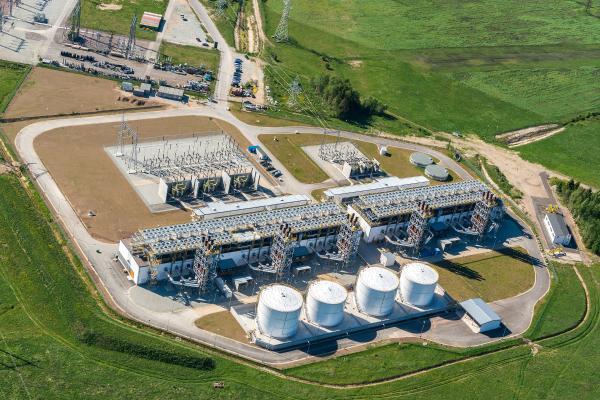
The European Investment Bank (EIB) is lending EUR 32 million to the Estonian energy company Elering for the construction of its back-up power generation plant in Kiisa. This is the first emergency reserve power plant to be built in Estonia.
The Kiisa power plant will only operate in the event of emergencies, like the failure of a major national power plant, when it is necessary to ensure continuation of the electricity supply for consumers. The design characteristics of the power plant aim to minimize the start-up time and energy consumption in warm standby mode, as well as to maximize reliability. Thanks to the EIB support, not only Estonia’s electricity networks, but also those of Latvia and Lithuania will be secured. Furthermore, it is expected that the construction of the plant will bring the cost of emergency reserve power in the network tariffs in Estonia down.
Pim van Ballekom, EIB Vice-President responsible for the Bank’s operations in the Baltic States, commented: “The EIB, the bank of the EU, strongly promotes security of the energy supply. We therefore particularly welcome this agreement with Elering, as the project will ensure the readiness to produce emergency power for Estonia, as well as for Latvia and Lithuania. We believe that a secure electricity supply is itself a pre-requisite of economic growth”.
Elering’s CEO Taavi Veskimägi said that “it is hard to overestimate the role of the Kiisa emergency reserve power plant for Estonian consumers in the event of any kind of electricity system failure. The plant has to be able to compensate for a tripped generator in the country or an interconnection in a matter of minutes in the event of a failure. The completion of the emergency reserve power plant is the last step in making EstLink 2 available to the market without restrictions. So from the point of view of security of supply for our customers, the emergency reserve power plant makes interconnections with neighbouring countries as safe as domestic generation capacities. As an energy sector enterprise, Elering values highly the long loan period offered by the EIB. A 15-year loan would not have been possible to obtain from commercial banks”.
The EUR 32 million loan from the EIB provides high financial value added to Elering by making available long-term financial resources at a lower funding cost.
Since the mid-90s, the EIB has played a key role in financing a broad range of projects across the Baltic States. Over five years alone, the EU bank provided loans in Estonia totalling EUR 1.37 billion, with almost one third earmarked specifically for energy projects. In 2009-2013, the EIB provided loans in Latvia totalling EUR 556 million, of which the biggest beneficiaries were the country’s small and medium-sized enterprises. During the same period, Lithuania was supported with loans amounting to almost EUR 1.5 billion, with infrastructure being the largest recipient.

©Elering, Margus Vilisoo
Download original

Photographer: EIB ©To be defined
Download original

Photographer: EIB ©To be defined
Download original